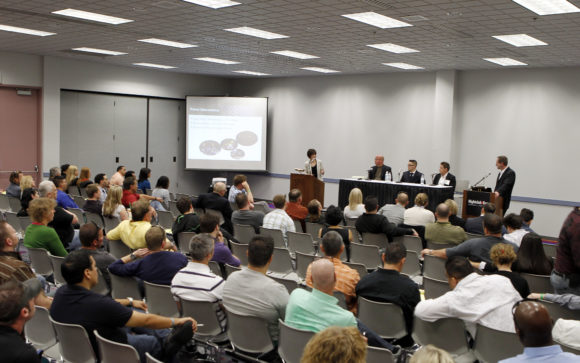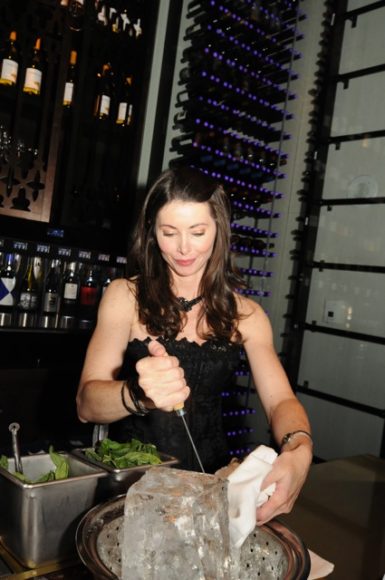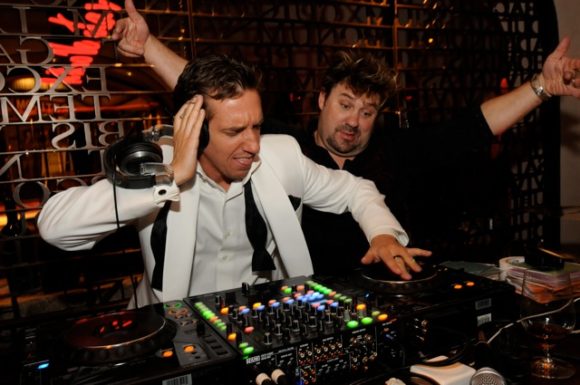2011 Nightclub & Bar’s Top 100 Super Session
by E.C. Gladstone

Technology and social media dominated the conversation at the Nightclub & Bar Show’s Super Session which was moderated by Donna Hood Crecca, Publisher and Editorial Director of Nightclub & Bar Magazine and David Henkes VP of Technomic consulting.
While the moderators guided the conversation to touch upon staff training and marketing the topic initially up for debate amongst panelists Jesse Waits of Las Vegas’ own XS and Tryst clubs at Wynn/Encore resorts, Howard Weiss of The Pool After Dark at Harrah’s Atlantic City, NJ property, and Mark Easterling of San Antonio’s independent Midnight Rodeo club was the overall usefulness of social media and the myriad tactics which worked and didn’t work for their venues.

Having those tools at your disposal are only useful if they can be used to positively impact their clubs’ most important thing…the bottom line. Easterling was the first to admit that, “I’m old enough to think that, as Betty White said on SNL, that Facebook is a waste of time. But I’ve learned things about it that I never knew it could do.” Waits emphasized that every employee of his clubs was expected to be active on Facebook and Twitter—with accounts monitored by the club and resort alike. In fact that monitoring has had the unfortunate consequence of “definitely losing a few staff” because tweets were not up to Wynn standards.
Weiss’s standards come from time spent in Vegas’ LAX club as well as his current role in New Jersey and, sharing some common ground perspective, he and Waits discussed their use of UrVenue software to track the spending patterns of return customers and engage with them while giving a thumbs-down to Four Square and Groupon. “We tried using FourSquare to check people in,” says Weiss, “but it became too time consuming.” Waits noted that things like Groupon were too liable to counterfeiting to be worthwhile. Easterling emphasized that at his club, personal interaction remained a primary tool.
Despite his concern with couponing and the susceptibility of counterfeiting, Weiss said that for celebrity-based events, his venue will open early and send out street teams with reduced-admission coupons to drive traffic. “If we’re spending $30 to 80,000 on a celeb, I have to make sure I can make it back by adjusting the door price and bottle service prices.” He added that celebrity DJs like Deadmau5 have proved just as successful for him as media personality appearances. He notes, “We’re learning that there’s a following for these DJs, and people are okay with spending $45 to get in to see them.”

Getting them in for a special event is one thing, attracting and maintaining repeat customers requires courting them. Weiss emphasized “You have to take care of locals. I learned that in Vegas [at LAX] and brought it back to Atlantic City.” Waits confessed he really didn’t have any figures on how much of his clientele represented repeat customers, while Weiss said he again relied on UrVenue for that. Easterling noted that as an independent local venue, he focused promotion on letting military in free, and something he called the “15 minute” program – where every fifteen minutes the club would do something special for the customers, using other local businesses to co-sponsor promotions such as free tacos at 1 a.m.
When the lights go up at the end of the night and all those free tacos are gone the differences in profit margins emphasized how Vegas clubs continue to dominate nationally. Waits claimed a 65-70 percent profit margin for last year (the same he claimed for 2009, interestingly) while Weiss stated a figure around 40% and Easterling comments, “As a stand-alone, we’re good if we do over 30%.”
From where they stand as managers all the panelists emphasized that it pays for them to know every aspect of their business intimately. Detailing his career path, Waits pointed out that he started as a bar back. “I’ve done every position in the club, from the bottom,” he said. Weiss, who runs a club where management trainees spend their first four months shadowing other positions, concludes, “It’s hard to ask somebody to do something if you’ve never done it.”
